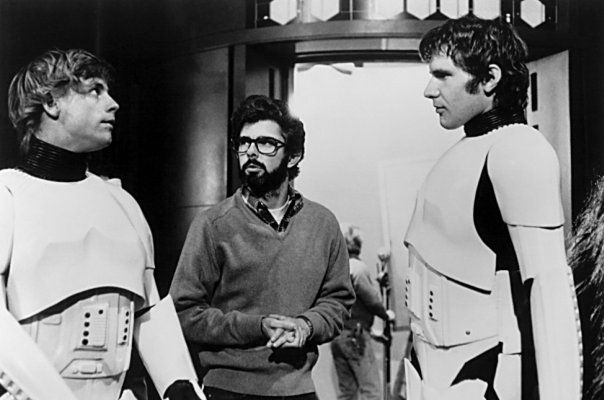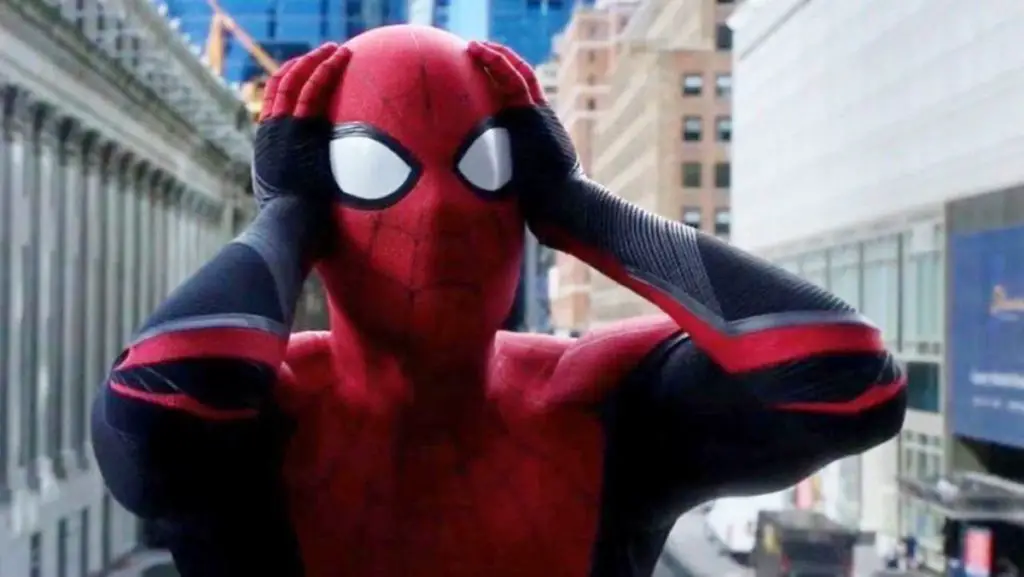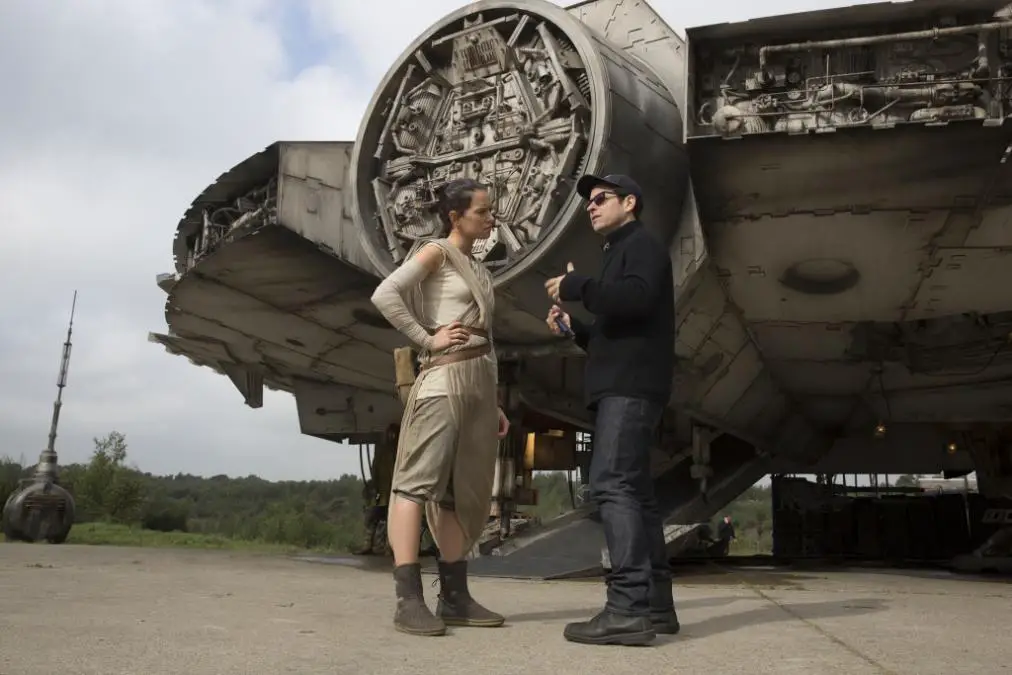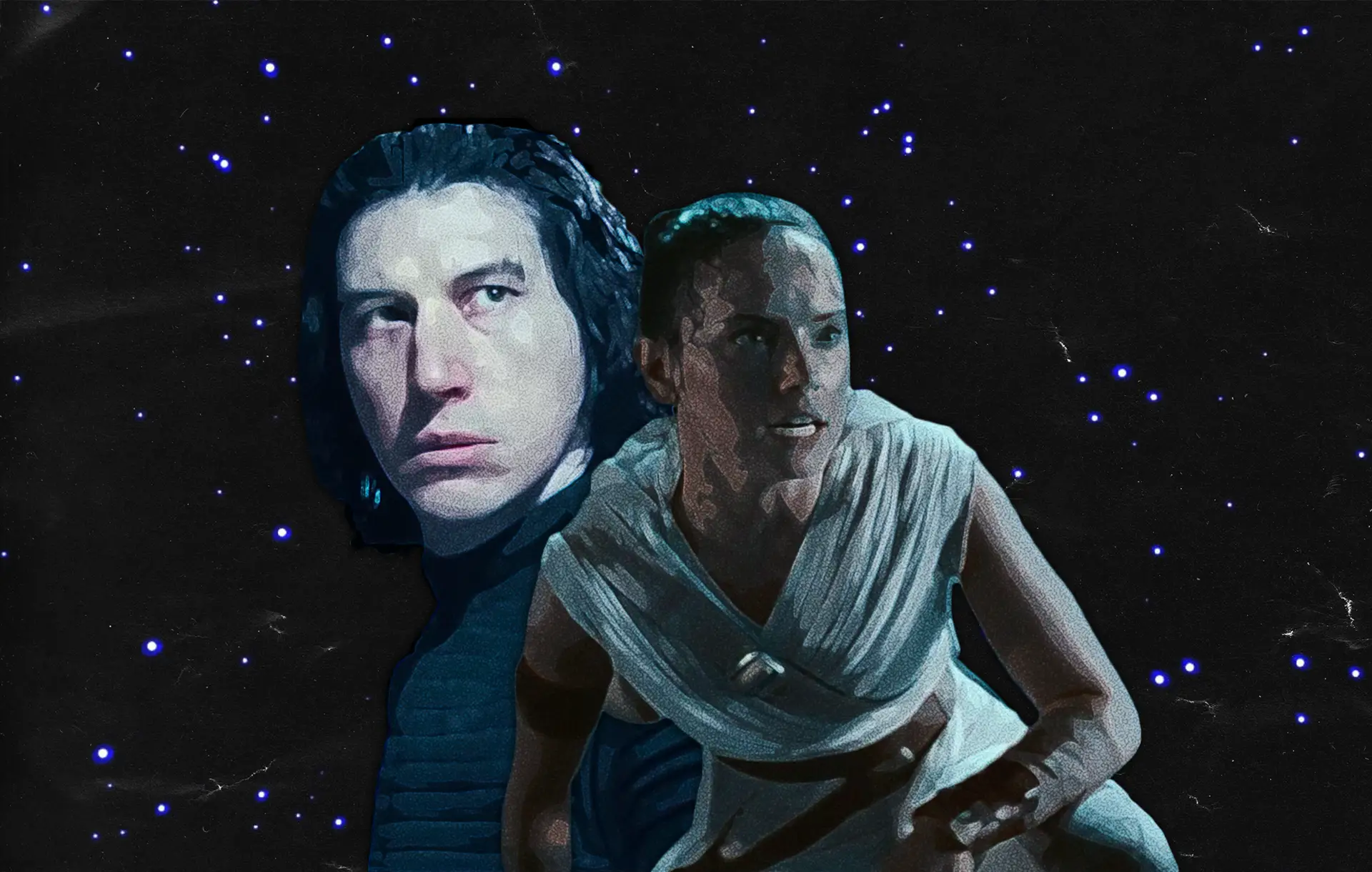Let’s just get this out of the way—The Rise of Skywalker was a bloated, breathless disappointment. A lot of people liked it, but they are wrong. That it somehow achieved an 86% Audience Score on Rotten Tomatoes is confounding, and I can only chalk it up to the same instinct that causes the majority of people to give high ratings to bad Airbnbs—because at our core, we foolish humans are generous optimists.
Or maybe it received such a high score thanks to the fact that it hosed the audience with fan service. And that’s what we’re here to talk about—how movies are becoming collective, almost communal creative endeavors, and how this practice needs to stop.
I’m talking about the rise of what I’ve deemed “meta-entertainment.” But before we get into that, let’s go back to a long time ago, in a galaxy right here.

The Various Waves of Star Wars
When George Lucas began cobbling together the first Star Wars film back in the mid-1970s, he had surprisingly little idea of what he was doing. Today its commonly thought that he had the whole thing planned out all along, but this is not the case. At that point he didn’t even know that Darth Vader was Luke’s father, nor that Luke and Leia were siblings. Han Solo was a green alien, and the editor was cutting film together without knowing what the plot was supposed to be.
This was all pretty typical of the creative process for the entirety of the original trilogy, and it is flat-out incredible that the movies turned out to be any good at all, let alone timeless, international sensations. In essence, Lucas accidentally made a string of good movies about a bunch of characters who accidentally do good by the galaxy (because let’s face it—the fact that Luke and Co. accomplished anything at all was often more due to luck than anything).
…then came the closing trilogy, which seemed to have no direction besides give the people what they want at all costs.
Then in 1999 the second Star Wars wave began washing over us, to a decidedly muted reception. This time Lucas meticulously planned everything, and even with all that planning the final product was poor. In this case we had a situation where meticulous planning accidentally resulted in a terrible trilogy about a bunch of characters whose best plans and intentions accidentally placed the galaxy in terrible jeopardy. Again, the production process is reflected in the final result.
And then came the closing trilogy, which seemed to have no direction besides give the people what they want at all costs . This was dawn of meta-entertainment.
What Is Meta-Entertainment?
In the contemporary blockbuster landscape, audiences care less about the movies than they do about how those movies are made.
Look, for example, at how fans consume the Marvel movies. Watching each movie only takes a couple of hours, but fans spend hours upon hours tracking behind-the-scenes news and drama, arguing online about the production process, and generally asserting what they want out of each release, regardless of the director or studio’s intentions.

And the audience is making its impact felt. When Sony wanted to pull the rights for Spider-Man from Marvel, the uproar this caused forced the company to backpedal almost immediately, and just a short while ago it was announced that Sony and Marvel will continue to collaborate on future Spidey releases.
In other words, contemporary audiences are increasingly more engaged in the production process than they are in watching the movies themselves. And the audience is playing a growing, direct role in dictating the actual content of the movies.
This is “meta-entertainment” – when the entertainment expands beyond the screen, and when the audience is suddenly included in the decision-making.
How Meta-Entertainment Ruined Star Wars
If the Sony/Spiderman debacle was an example of when meta-entertainment works (because I think we can all agree that more MCU Spider-Man films are in order), The Rise of Skywalker shows its limitations.
When the final trilogy of the Skywalker Saga launched with The Force Awakens, we still hadn’t quite reached the point of meta-entertainment. It was packed with nostalgia and fan service, to be sure, but at this point audience engagement with the production process was minimal.
This all changed after Rian Johnson tossed the concept of fan service out the window and gave us an installment that challenged the audience to look beyond nostalgia. Critics appreciated this effort, but audiences were outraged. And that anger pushed meta-entertainment into the Star Wars universe for the first time.
Fans argued relentlessly across the internet and YouTubers tore the movie apart. The seemingly universal cry became, “We want our nostalgia and payoffs!” So when J.J. Abrams resumed the director’s chair for the final movie, audience scrutiny was ratcheted up to a whole new level.
And what we got was a meticulous attempt to deliver on just about every gripe the fans had ever uttered. Pissed that Luke threw away his lightsaber? Oh well now he’s come around and agrees that lightsabers should be treated with respect. Alt-right internet trolls bemoaned the inclusion of non-white women? Rose Tico gets kicked into the background. They even gave Chewbacca a medal (completely unrelated to the almost-nonsensical “plot”), because fans had complained for decades about the fact that he didn’t get one in the first movie.
Essentially, this was a movie that was made by the audience, like a $275 million work of fan fiction. Instead of Abrams and his team sitting down to write a solid script, they strung together a series of attempts to appease angry fans. The result is a disjointed, disappointing mess.

Taking Back Control
This is the risk of meta-entertainments that are essentially created by a committee comprised of not only the director, writers, studio, and actors, but by the countless voices and opinions of the audience as well. The story loses focus when it starts careening around trying to please everyone.
Meta-entertainment can be successful when properly balanced. Marvel has done a fairly good job of this. The audience engagement and communal discussion around everything relating to Infinity War and Endgame, for example, was a lot of fun, and the Russo brothers pulled this off largely because they knew when to deliver on fan service, and when to subvert expectations.
…you can’t be surprised when you’re simultaneously being spoon fed exactly what you’ve asked for.
The audience isn’t always right! An element of surprise is part of what makes a movie captivating, but you can’t be surprised when you’re simultaneously being spoon fed exactly what you’ve asked for.
Meta-entertainment isn’t going anywhere, but to navigate it effectively, directors and other creatives will have to know when to assert control over their own projects.
Or to paraphrase one of Star Wars’ most beloved scruffy-looking, nerf-herding scoundrels, it’s not always the right time to discuss as a committee.




